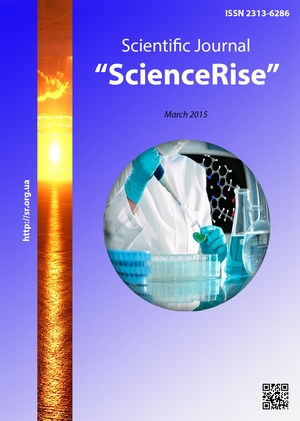Adaptation of foreign experience of inventory accounting in domestic practice
DOI:
https://doi.org/10.15587/2313-8416.2015.38734Keywords:
inventory, accounting in foreign countries, periodic system, continuous system, managementAbstract
This article provides a comparison of foreign and domestic experience in inventory accounting. Advantages and disadvantages of perpetual and periodic inventory systems were defined. The viability of periodic inventory system practice was investigated in the context of Ukrainian accounting system. The methodology for store accounting procedure in accordance with periodic inventory system was proposed for domestic accounts
References
Butynets, F., Sokolov, Y., Pankov, D., Goretskaya, L. (2002). Accounting in foreign countries. Zhitomir PC "Ruta", 660.
Burdeyna, L. (2010). Comparative analysis of national and international experience of inventory accounting. Economics: Scientific Papers. Private higher education institution "Bukovynskiy University", 6, 14–21.
Efimenko, V. (2005). Accounting in foreign countries. MBK, 211.
Laryuhina, I. O. (2013) Defining features of accounting reserves in Ukraine and in foreign countries. Development Management, 15 (155), 117–120.
Matviichuk, M. (2013). Accounting for inventory: administrative aspect of optimization. Innovative ekonomika, 9 (47), 180–187.
Nesterenko, E. (2013). Мethods of accounting for inventories, national and international experience. Development Management, 17 (157), 58–61.
Downloads
Published
Issue
Section
License
Copyright (c) 2015 Ірина Анатоліївна Карабаза, Людмила Ігорівна Лежненко

This work is licensed under a Creative Commons Attribution 4.0 International License.
Our journal abides by the Creative Commons CC BY copyright rights and permissions for open access journals.
Authors, who are published in this journal, agree to the following conditions:
1. The authors reserve the right to authorship of the work and pass the first publication right of this work to the journal under the terms of a Creative Commons CC BY, which allows others to freely distribute the published research with the obligatory reference to the authors of the original work and the first publication of the work in this journal.
2. The authors have the right to conclude separate supplement agreements that relate to non-exclusive work distribution in the form in which it has been published by the journal (for example, to upload the work to the online storage of the journal or publish it as part of a monograph), provided that the reference to the first publication of the work in this journal is included.

